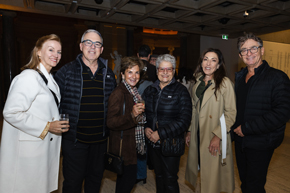Israelis rally against judicial overhaul for 11th week
Israelis have packed city streets in nationwide demonstrations now in their 11th week against plans by the hard-right government to curb the Supreme Court’s powers, which critics see as a threat to judicial independence. Prime Minister Benjamin Netanyahu, who says his aim is to balance out branches of government, wields a parliamentary majority along with his religious-nationalist coalition allies. Still, his planned judicial overhaul has sparked concern at home and abroad.

Tel Aviv, Israel, Saturday, March 18, 2023. (AP Photo/Ohad Zwigenberg)
As the changes head toward ratification, the protests have escalated, affecting the economy and extending to a threat by some military reservists not to heed call-up orders.
President Isaac Herzog has appealed for the overhaul to be postponed and on Wednesday presented an alternative plan that was swiftly rejected by the prime minister.
“I came with my friends here to Tel Aviv, to demonstrate against what is called reforms,” Ronen Shaike, 47, told Reuters on Saturday at a demonstration in the city, saying he wanted to defend the country’s democracy, which he accused the government of seeking to destroy.
Netanyahu, who returned to office for a sixth term in late December, has said the demonstrations are aimed at toppling him. He is on trial in three corruption cases and denies wrongdoing.
“I’m here to demonstrate with the people of Israel, against the revolution, against the changing of our state,” said Dalia Yosef, 72, also at the Tel Aviv demonstration.
Earlier on Saturday, protesters demonstrated at a central village where far-right National Security Minister Itamar Ben-Gvir was spending his weekend.
“Protest against me as much as you want,” Ben Gvir said on Twitter. “I will fight for your right to protest. But why gather outside the windows of the synagogue with loudspeakers, honk, scream and make people violate Shabbat?”
Protests even spread to the occupied West Bank, where Israeli settlements have long been considered a stronghold for Netanyahu’s right-wing coalition partners.
More than 50 mostly modern-Orthodox Jewish protesters chanted traditional Jewish songs holding blue and white flags at a central junction in the West Bank settlement of Efrat.
AAP









This reportage is exaggerated and is reflective of the Tel Aviv media bubble which possibly with one exemption supports the demonstrators. I was in Jerusalem at the end of Shabbat and if there was a gathering it was not noticed. There were barriers in the streets being taken down from streets that had been blocked from a successful marathon of the previous day, As for the demonstrations at the moshav, surely a backlash was expected. The call for democracy for all must include those who want to worship. How was it that their human rights were not included in the democracy the demonstrators were screaming about? Their minority rights needed to be preserved. There is a constitutional debate to be had, but one that doesn’t solely intend to only preserve those who have historically enjoyed political power in the country.